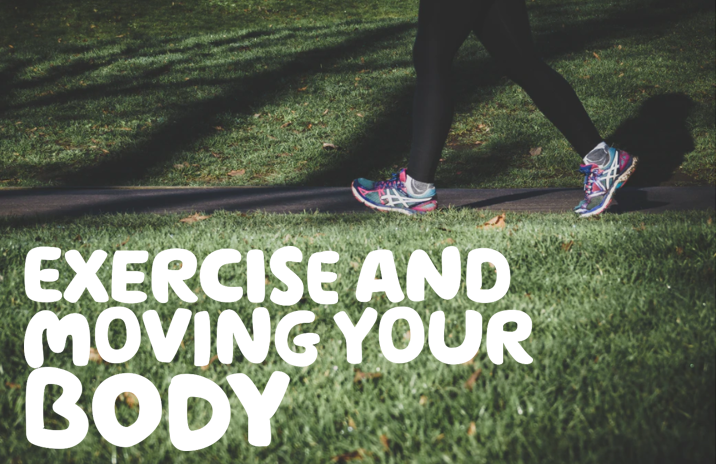
Audrey who is a Macmillan Nurse Specialist on the Support Line, and in our Ask an Nurse section, has been speaking to people living with cancer about staying active and exercising. In today’s Community News Blog, Audrey is sharing information and some resources at the end to help you move your body.
You will find the resource links at the bottom of the page.
In a time where we are all trying to adjust to the constant changes that covid-19 is having on our lives, it is hard to keep up with it all. Having a cancer diagnosis and treatment during the covid-19 pandemic can be scary, lonely and life-altering. Trying to keep a routine and remain active can be even more difficult for people living with cancer. Knowing how best to stay safe and remain active is a common question cancer patients are asking just now.
How much exercise will depend on how fit you are generally. After surgery and chemotherapy, it is important to remember that you are still recovering, and this alone can impact your normal fitness levels.
“After surgery and chemotherapy, it is important to remember that you are still recovering, and this alone can impact your normal fitness levels”.
The rule of thumb is to start slowly and to build up gradually. If you do too much one day, you may feel very tired and sore the next day. Don't feel that you always must do more than yesterday. Some days you'll have more energy than others. Listen to your body and rest on days where you may feel more tired and don’t push yourself to do too much too soon.
“If you do too much one day, you may feel very tired and sore the next day. Don't feel that you always must do more than yesterday. Some days you'll have more energy than others. Listen to your body and rest on days where you may feel more tired and don’t push yourself to do too much too soon.”
Being physically active means any movement that uses your muscles and more energy than when you’re resting. You don’t even necessarily need to leave the house to be physically active. It can involve anything from a short walk, walking up and downstairs, online workout, housework to chair exercises.
What is physical activity?
Depending on your situation there may be different types of movement needed to help you move and exercise. There are two types of physical activity:
It is important to go at your own pace and choose exercises that meet your individual needs:
If you are thinking of starting some exercise after treatment, or for other health benefits then you may find the following suggestions helpful;
Resources to help you get started
We would like to thank Audrey for taking the time to share this information about exercising and keeping active. We hope you have found this helpful.
If there are any exercises you do that get you moving, please do share them in the comment box below. We are sure other members would love some ideas from you to get going.
Whatever cancer throws your way, we’re right there with you.
We’re here to provide physical, financial and emotional support.
© Macmillan Cancer Support 2025 © Macmillan Cancer Support, registered charity in England and Wales (261017), Scotland (SC039907) and the Isle of Man (604). Also operating in Northern Ireland. A company limited by guarantee, registered in England and Wales company number 2400969. Isle of Man company number 4694F. Registered office: 3rd Floor, Bronze Building, The Forge, 105 Sumner Street, London, SE1 9HZ. VAT no: 668265007